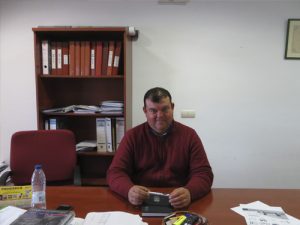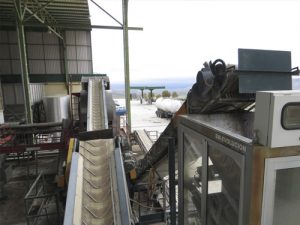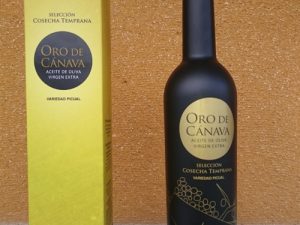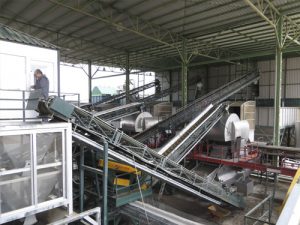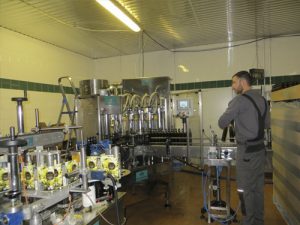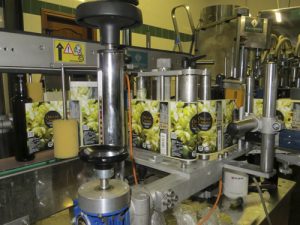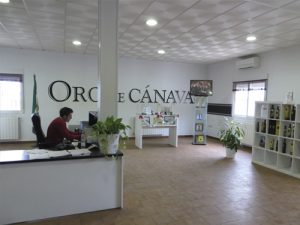Oro de Cánava is a cooperative that consists of a group of farmers (704 members) who come together to grind olives with specific machinery in order to produce olive oil. The co-operative was established in 1976 with 110 members but this has since increased to 704 members. This type of co-operation enable cost savings and better prices in the marketplace. It is a democratic organization whose administration and management is agreed by the partners / members.
The people who founded the cooperative wanted to collaborate together in order to reduce costs and be able to grind the olives in the most economical way possible. The co-operative also seeks to market and sell the olive oil at competitive prices. When the co-operative moved to the new facilities in 2006, it invested in excess of €4 million in new infrastructure. It was a very large investment, which was distributed among all the partners and thus you have the possibility of accessing more powerful machinery, which enables the extraction of greater quantities of oil and at a higher quality. The co-operative model is advantageous as an individual farmer would not be able to afford this type of investment. Expenses are saved in grinding; and personnel. The FEDER funds contributed 40% of the purchase price. The co-operative successfully applied for several grants and this has helped the financing of the new infrastructure. The co-operative was also able to access specialist / bespoke funding calls as it has DOP (Protected Designation of Origin) certification. The co-operative was also able to obtain lending facilities from the bank.
In a cooperative with so many members, there can be a sub-group who wishes to change or impose its own rules. There might be people who with their ideas can harm the factory. It is important to be very vigilant and that each issue be decided by majority vote. There must be very clear rules, with transparency throughout the entire process. Everyone votes and makes decisions in the mutual interest of all members.
One member of the co-operative clearly expressed these sentiments:
‘’In short, it is clear that in order to manage a cooperative, in which there are many interests involved and many families that depend on the proper management of the cooperative, one must have the gift of people, know how to deal with farmers, that sometimes It is not an easy task because they have a mentality sometimes difficult to carry, rooted in their customs and tradition, what they have always lived. Be very aware of compliance with the rules and act according to what the majority decides, because there will always be people with inadequate ideas that can harm the correct functioning of the cooperative.’
It is necessary to be up to date in terms of business and industrial management procedures and regulations. It is essential to have basic knowledge but also to hired people specialized in different areas / tasks. Otherwise, it would be very difficult to manage a company which deals with invoices amounting to several million euros per annum.
Advice/Recommendation
“You have to have a good working environment, get along with everyone to have consensus with what is decided. You need to look for specialists, people who know how a company of this type works to be in front, because otherwise it would be very complicated.
They have legal account advisors and in different subjects, but even so the staff that works here, needs to have some training.
Have business knowledge, knowledge in the manufacture of oil, know how the whole process works. The president began on the governing board as a member and after many years, one learns little by little and when he became president he already knew perfectly well the operation of the factory.”
Queries/Questions
- Would you consider it important to establish a quality system with ISO 22,000 cer- tification similar to Oro de Cánava cooperative?
- Do you think that a sales and marketing optimization plan could be developed in your organization in order to increase online sales?
- Do you think that it would be beneficial for the farmer to carry out a guide on rel- evant aspects in the oil manufacturing process, such as the optimum moment of olive harvesting, waiting time in mill for grinding, etc.?



 Čeština
Čeština  English
English  Français
Français  Deutsch
Deutsch  Italiano
Italiano  Slovenščina
Slovenščina  Español
Español 